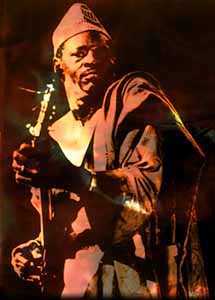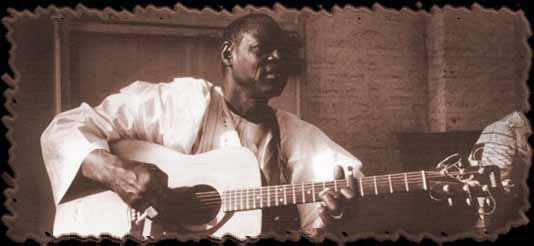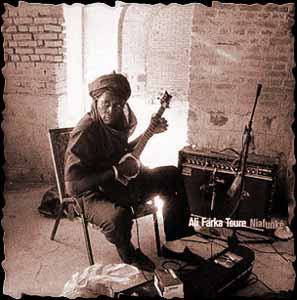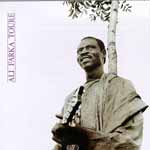
Ali Farka Toure
|
This self-titled debut is an amazing collection,
spotlighting the Malian guitarist in his full solo acoustic glory for a
beautiful, intimate music that recalls American blues. The beauty of Ali Farka
Toure lives in Toure's light, nimble touch on the strings as well as his
flexible, reedy voice, which both perfectly complement his gentle, ambling
rhythmic style.
|
|
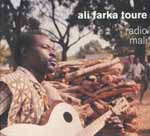
Radio Mali
|
Previously available as a 1996 import on the World Circuit
label, this nearly 72-minute collection of recordings were originally made for
Malian radio broadcast between 1970 and 1978. As a single collection, this is
the finest yet of Ali Farka Toure's slow-burning music, characterized by
nimble, expressive guitar playing and strong, expressive singing. Strands of
sing-songy, seemingly simplistic melodies wrap around each other, coming
together and unwinding like strands of RNA. This is some mind-blowing stuff.
|
|

The River
|
This 1990 recording contains one of the best African blues
tunes ever recorded, and a classic Ali Farka Toure moment. As the electric
guitar roars in at the opening, punctured by a darting harmonica line, here are
the roots and branches of the blues in its journey from west Africa to the
Americas, and more importantly, back again.The River is one of Ali's most
straightforward recordings, featuring Rory McLeod's harmonica and a marvelous
duet with saxophonist Steve Williamson that adds a little sideways R&B.
('Heygana' comes from this album) |
|
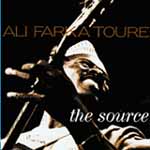
The Source
|
This is my alltime favorite album, Ali Farka Toure at his
very 'source'. He works again with harmonica player Rory McLeod, but mostly
this is a recording with his amazing band, calabash players Amadou Sisse and
Hamma Sankare and conga player Oumar Toure, plus a chorus of singers. The
emphasis is on the guitar of Ali Farka Toure and the source of the music, the
soil of Mali itself.
('Roucky' and 'Dofana' come from this album) |
|
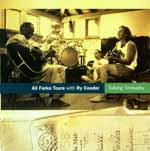
Talking Timbuktu
|
Talking Timbuktu is a groundbreaking record that vividly
illustrates the Africa-Blues connection in real time. Ali Farka Toure, one of
Mali's leading singer-guitarists, has a trance-like, bluesy style that,
although deeply rooted in Malian tradition, bears astonishing similarity to
that of John Lee Hooker or even Canned Heat. Ry Cooder, well versed in domestic
and world guitar styles, is the perfect counterpoint in these extended
songs/jams, his sinewy slide guitar intertwining with his partner's in a super
world summit without barriers or borders.
|
|
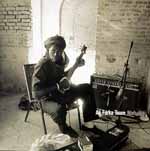
Niafunké
|
Ali Farka Toure's first album since his 1994 collaboration
with Ry Cooder, Talking Timbuktu, makes a convincing argument for the adage
that home is where the art is. Recorded in an abandoned brick edifice located
between Toure's extensive rice fields and the Sahara-bordering village of
Niafunké, Mali, this is the guitarist's most purely African album yet.
('Asco' comes from this album) |
|

